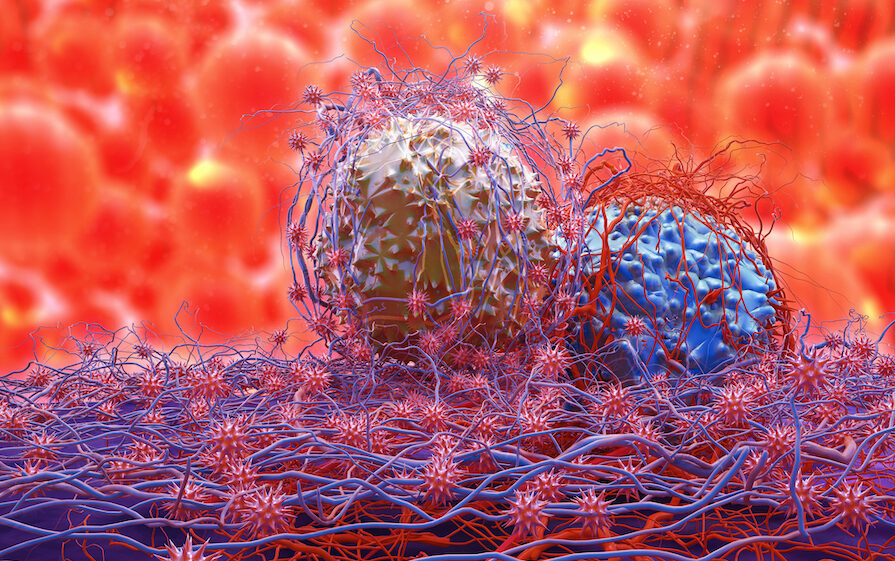An innovative method known as ONCOTECH has been developed by researchers to physically attach oncolytic adenoviruses to T-cell surfaces through the interaction of antigens and receptors. To accomplish this, the viruses, which encode a Cas9 system targeting immune checkpoint inhibitor genes, are encased in cell membranes that bear T-cell-specific antigens and delivered intravenously into tumors. This combination of virotherapy and cell therapy with ONCOTECH represents a promising translational technology.
The research article, “An oncolytic virus–T cell chimera for cancer immunotherapy,” was published in Nature Biotechnology.
ONCOTECH enhances antitumor responses
Among the newer forms of immunotherapy for cancer treatment, oncolytic virotherapy stands out. Oncolytic viruses can kill tumor cells without spreading to healthy tissues because they replicate only in tumor cells after intratumoral administration, triggering inflammatory responses specific to tumors. However, several challenges are limiting the technology.
Systemic delivery of oncolytic viruses is more practical for clinical indications and can readily target primary and disseminated tumors, although intratumoral delivery guarantees direct access to the tumor lesions and evades potential systemic neutralization. However, due to insufficient virus uptake by tumor cells, intravascular administration of oncolytic viruses has not shown significant antitumor activity. Another drawback of oncolytic virotherapy is an upregulation of immune checkpoints (like PD-L1) in cancer and healthy immune cells. Two potential solutions are combining oncolytic viruses with immune checkpoint inhibitors or adding anti-PD-L1 antibodies. However, oncolytic viruses and immune checkpoint inhibitors still have problems penetrating tumors; hence, novel approaches are required to target tumors with these agents.
Researchers from Zhejiang University and the Chinese Academy of Sciences created ONCOTECH. The system relies on oncolytic viruses encased in a synthetic biological membrane that bears T-cell-specific antigens. T cells physically attach oncolytic viruses to their surfaces through their receptors, which can be TCRs or chimeric antigen receptors (CARs), without impacting cell function. With the help of carrier T cells that have recognized tumor-specific antigens, oncolytic viruses can be readily released and internalized by cancer cells, allowing for targeted viral infection. Oncolytic viruses engineered to express the Cas9 editor can downregulate PD-L1 expression in tumor cells and infiltrate immune cells following infection. This reduces the immunosuppressive tumor microenvironment and improves the effectiveness of T-cell therapy and oncolysis in tumor fighting.
Several of ONCOTECH’s limitations must be resolved to proceed with clinical translation in the future. One issue is that tumor antigens on biological membranes can repeatedly stimulate TCRs or CARs, depleting T cells and impair their ability to deliver effector functions. To combat this, carrier T cells can be engineered to express CARs with dual specificities. Additionally, it is currently not possible to use ONCOTECH to treat advanced solid tumors that are antigen-deficient or antigen-lost; however, this is not an issue when treating melanoma, lung cancer, PDAC, or glioblastoma, which are all tumors that express antigens. Lastly, clinical translation could be hindered by immune incompatibility between the recipient and the cells used to produce vesicles. Future research should focus on developing production cells compatible with the immune system to avoid potential immunological rejection by patients. This will help to avoid detection by host immune cells, like NK cells, before viral infection.

Rohit Malhotra is a medical expert and health journalist who offers evidence-based advice on fitness, nutrition, and mental well-being. His articles aim to help readers lead healthier lives.


